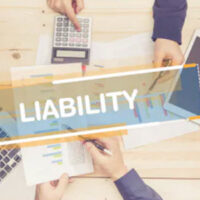Disputed Liability in Multi-Vehicle Collisions: How to Prove Fault When No One Admits Blame

Multi-vehicle collisions are among the most complicated types of personal injury cases in Florida. When three or more vehicles are involved in a crash, it can be incredibly difficult to determine precisely who is at fault. Drivers often point fingers at one another, insurers attempt to minimize payouts, and the physical evidence may be confusing or even contradictory. In these situations, the burden falls on the injured plaintiff to prove fault—a challenge that demands experience, precision, and the correct legal strategy.
At Smith, Ball, Báez & Prather, our West Palm Beach car accident attorneys understand how overwhelming a multi-vehicle accident can be, especially when no one accepts responsibility. For injured victims, establishing liability is essential to receiving full and fair compensation. The good news is that fault can be proven, even when everyone involved denies wrongdoing. With the right approach, strong evidence, and skilled legal representation, victims can overcome disputed liability and hold the right parties accountable.
The Challenge of Disputed Liability
Multi-vehicle crashes are chaotic by nature. They often occur at high speeds, such as on highways or major intersections, and involve chain-reaction impacts where the actions of one driver may set off a series of collisions. In the aftermath, it can be difficult to reconstruct the precise sequence of events. Each driver may have their own version of what happened, often shaped by self-preservation or incomplete recollection.
Disputed liability arises when no party admits fault or when several drivers share partial responsibility. In Florida, this creates legal complexity because the state operates under a comparative negligence standard, codified in Florida Statute §768.81. Under this rule, each party’s compensation is reduced by their percentage of fault. Therefore, determining how much fault lies with each driver is essential for a fair resolution.
Gathering and Preserving Evidence
In any personal injury claim, evidence is the foundation of proving liability. In a multi-vehicle accident with disputed fault, collecting and preserving all available evidence becomes even more important. This may include:
- Police reports and traffic citations
- Dashcam or surveillance footage
- Eyewitness testimony
- Vehicle damage analysis
- Skid mark and debris pattern analysis
- Cell phone data, if distraction is suspected
- Black box data from commercial vehicles
Securing this evidence quickly can make a significant difference. Skid marks fade, vehicles are repaired, and memories of witnesses can become less reliable over time. At Smith, Ball, Báez & Prather, we act immediately to investigate the scene, work with forensic experts, and send preservation letters to ensure that crucial evidence is not lost, deleted, or altered.
Using Accident Reconstruction Experts
In many multi-vehicle cases, a key strategy for proving fault is working with accident reconstruction specialists. These experts analyze the physical evidence—from the final resting positions of the vehicles to point-of-impact damage and road conditions—to create a scientific explanation of how the crash occurred.
Accident reconstructionists may use computer simulations, 3D modeling, and physics-based analysis to demonstrate who had the opportunity to avoid the crash and who acted negligently. Their findings can be pivotal when no party admits fault, providing an objective, science-backed account that can sway both insurers and juries.
Depositions and Witness Testimony
When liability is in dispute, testimony from drivers, passengers, and third-party witnesses becomes a crucial component of the case. Depositions allow attorneys to question parties under oath and compare their stories with physical evidence. Inconsistencies, contradictions, or admissions of distraction or improper driving can emerge during this process, helping to clarify fault.
Witnesses not involved in the accident—such as pedestrians, other drivers, or first responders—can provide valuable third-party observations. These accounts are often more persuasive than statements from the drivers themselves, who have a vested interest in avoiding liability.
The Role of Insurance Companies
Insurance companies are quick to exploit ambiguity in multi-vehicle accidents. If no one accepts blame, insurers may deny claims outright or offer settlements far below what victims deserve. Some may argue that you were partially at fault to reduce their liability, even if you were the victim of another driver’s recklessness.
This is why having experienced legal counsel is vital. At Smith, Ball, Báez & Prather, we know how to challenge these tactics, present compelling evidence, and negotiate from a position of strength. We are not intimidated by complex liability disputes or aggressive insurers, and we prepare every case with the expectation it may go to trial.
Proving Fault Without a Confession
It’s important for injured victims to understand that proving fault does not require a confession from another driver. In Florida, liability can be established through a combination of circumstantial evidence, expert analysis, and testimony. Even if no one admits blame, the law allows for fault to be assigned based on the totality of the evidence.
By building a comprehensive case that includes visual reconstructions, detailed timelines, expert opinions, and persuasive narratives, plaintiffs can overcome the barrier of disputed liability and seek justice through the legal system.
Contact Smith, Ball, Báez & Prather
If you were injured in a multi-vehicle collision and no one is accepting fault, don’t give up. You have options, and you have rights. At Smith, Ball, Báez & Prather, our team is experienced in handling complex, high-stakes accident cases where fault is disputed. We fight aggressively to uncover the truth and secure the compensation our clients deserve. Contact us today for a free consultation and let us help you move forward with confidence.
Source:
forbes.com/advisor/legal/auto-accident/multi-car-accident
